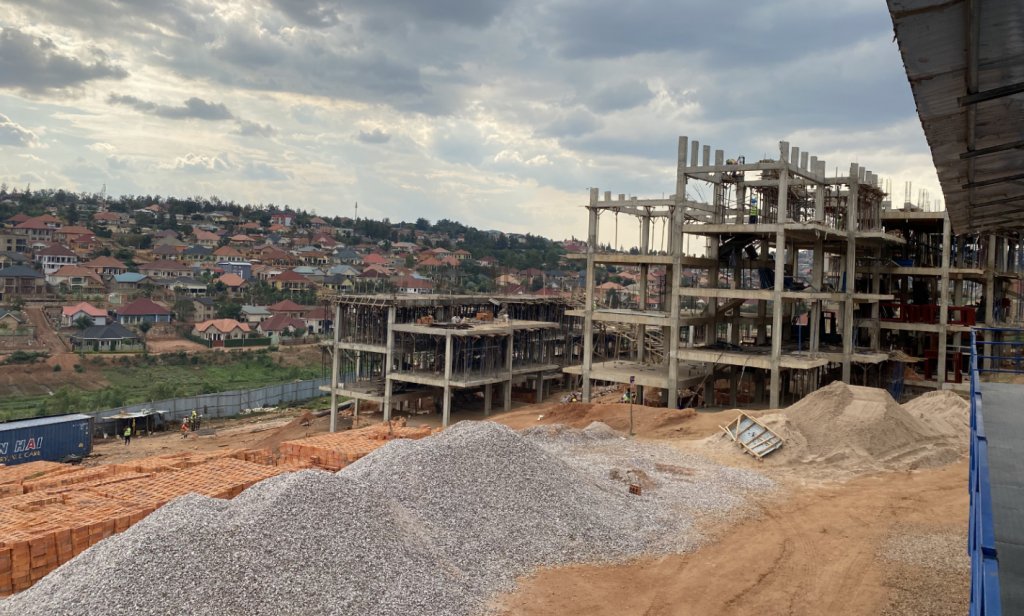
With roughly 13 million people, Rwanda has experienced just three COVID-19 deaths for every million persons, compared to 742 per million in the United States. The small East African country’s success in dampening novel coronavirus demise has principally been due to a compliant population’s willingness to submit to a comprehensive lockdown. Last April, at the height of shelter-in-place, Rwanda basically closed its borders and required all but those providing essential services to stay home. A 10 p.m. curfew remains in place today, with bars shuttered, masks universally worn, and negative test results required for international visitors.

The pandemic policies came at a cost, of course. Most businesses were shuttered for at least six weeks, with many remaining closed. Demand for tourism and regional conventions, which had been emerging as the backbone of Rwanda’s economy, has shrunk to virtually nothing.
Amidst this calamity a project to develop working class homes in Rwanda’s capital, Kigali, has continued to emerge. Buffeted by supply chain disruptions – particularly for cement, which generally comes from neighboring Tanzania – and extended shelter-in-place work stoppages construction has been delayed, but not destroyed. See Far Housing’s initial 52 apartments are on track to be open for occupancy by early spring.
“I never thought I’d be able to afford an apartment,” said a municipal civil servant. “Until I heard about this development.”
The units are priced to be affordable to teachers, police officers, and merchants; working class families. They’ll represent the first densely built, entry-level homes available in Kigali, a missing rung in the housing ladder.
Project success has been bolstered by pro bono support from Dogpatch-based architects, Red Dot, and socially conscious investors, including Potrero-Dogpatch Merchants Association president Keith Goldstein. As development moves to the next phase – another 500 homes, with associated parks, community gardens, and shops – additional investment and philanthropic assistance will be needed, to help pay for playgrounds and family houses.
Net profits from the development will be directed to Agahozo-Shalom Youth Village, which cares for more than 500 vulnerable teenagers.
Steven Moss serves as See Far Housing’s board chair; steven@moss.net.

